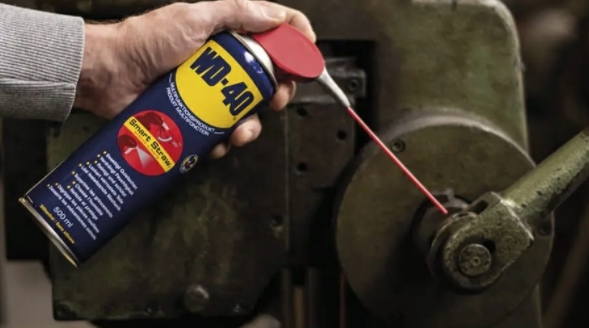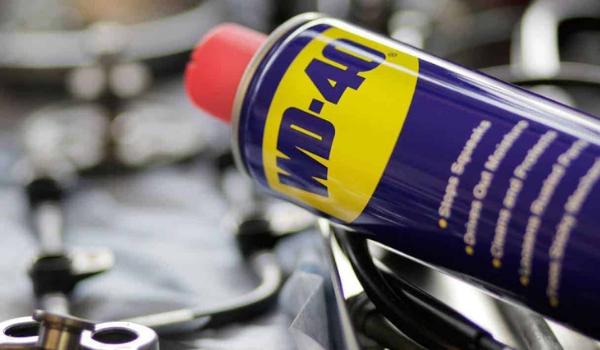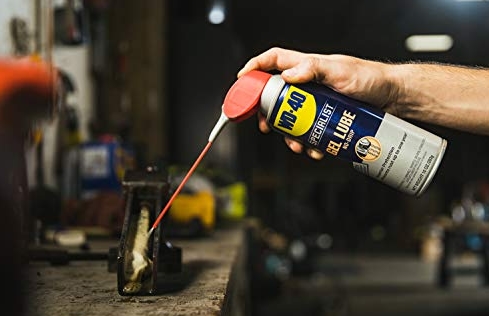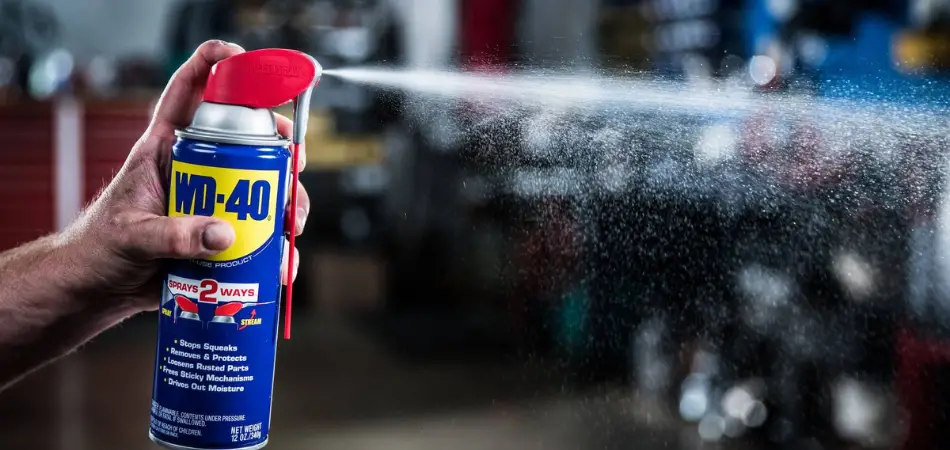Many people have asked if WD-40 is a lubricant with ingredients to prevent rust with such a name. The truth is that it removes moisture from metal very effectively and can slow the formation of rust by displacing moisture from metal surfaces and protecting them from humidity which speeds up the oxidation process. So, does wd-40 cause rust?
No, WD-40 does not contain water and will never cause rust. WD-40 contains strong solvents that burn off very quickly when sprayed.These solvents evaporate or dry out quickly without leaving any residue. The oils that remain in WD-40 dissolve or keep inactive rust from forming by preventing oxygen and moisture from reaching the metal surface.
If applied generously and quickly, according to the manufacturer, WD-40 can dissolve rust so that it can be wiped away. However, it is not a good idea to leave any thin film of WD-40 on a surface. It dries quickly, leaving behind a thin oil film that attracts dust and dirt to it.
Contents
How Is It Possible for Wd-40 to Cause Rust?
Now, there exists the question of how that which was designed to remove and possibly prevent corrosion could cause rust. The logic is in the understanding of what causes rust.

We know that metal’s exposure to oxygen gets it oxidized. Iron, for instance, is easily oxidized when it reacts with oxygen. When this reaction takes place in the presence of water, it speeds up the rusting process. The process goes even faster when the reaction happens in the presence of saltwater because this medium allows for the easier exchange of electrons, which is the foundation of chemical reactions. In other words, prolonged exposure of metal to moist air results in rust.
The implication is that in the absence of water, the eventual rusty appearance of metals is delayed, and this is the mechanism by which WD-40 works – to displace water, a key ingredient in the formation of rust. By this action, WD-40 prevents rust; however, in the short term. You may need to reapply periodically to maintain its rust preventing action. Primarily, WD-40 works as a solvent that breaks the bond which exists between metal and rust.
However, there have been concerns that the solution is hygroscopic, which eventually leads to rust. Other comments claim that it does a great job at water displacement until it dries. When it does, it leaves behind a varnish that attracts moisture, which consequently leads to rust. But then, these concerns have been specific to certain items. Therefore, it has been generally accepted that WD-40, being hygroscopic, should not be used on drive chains, firearms, and gears. On no account should you use WD-40 to clean or maintain firearms!
Is Wd-40 Incompatible with Metal?
When WD-40 was first introduced into households and workshops, most people used it as a lubricant and it has done the job of lubrication in some instances even though its original design was to be an anti-corrosive agent. As an anti-corrosive agent, it works on different metals, removing and preventing rust from them without damaging the surface of the metal. The product is also compatible with painted metals without causing any damage to the paint.

Applying WD-40 to your rusted metal breaks the bonds between the metallic surface and attached rust, thereby removing the rust. You can remove rust from your metallic items by spraying the item with the solution. Once you’ve completely covered the item with the de-rust spray, wait for 10 minutes before using a brush to break the already dissolved rust away from the metal, and thereby revealing a clean surface.
Can Wd-40 Prevent Rust?
WD-40 Multi-use product can be used to prevent future rust because of a thin, clear coating the formula leaves behind when you apply it on a metallic surface. The WD-40 solution is a compound of various hydrocarbons with non-volatile, viscous oil as its active ingredient, which, when applied to a metallic surface, protects from moisture. Furthermore, moist air can penetrate crevices; the manufacturers of WD-40 showed genuine ingenuity by diluting the active ingredient with a volatile hydrocarbon to give the solution a low viscosity, which can also penetrate crevices. Then, the volatile hydrocarbon evaporates, leaving the oil behind.

It is noteworthy that WD-40 is safe for use on different metals ranging from aluminum, bronze, copper, stainless steel, chrome, brass as well as pewter.
In some cases, depending on the intensity of the rust, after using the WD-40 Multi-use Product, you may still find remnant rust on the surface of the metal you intend to clean off its rust. Your next course of action should be to apply the WD-40 Specialist Rust Remover Soak. It was designed specifically to remove rust.
Your first move should be to submerge the metal into a solution of WD-40 Specialist Rust Remover Soak and leave it for 30 minutes. Now, as I earlier opined, depending on the intensity of the rust, you may need to leave the item submerged in the solution even longer.
What we have discussed in the preceding paragraph is rust removal. Rust prevention, however, becomes critical for a metal you want to keep in its fine state. A different variant of the WD-40 product which specifically works for rust prevention is the WD-40 Specialist Corrosion Inhibitor. This product is perfect for an environment with high humidity; the spray prevents the onset of corrosion and maintains the metal’s fine surface. Unlike its counterparts, it doesn’t dry up but stays where you spray it. This variant is potent enough to protect your metal from corrosion for a year when it’s outdoors and two years if kept indoors.
Final Thoughts
WD-40 and its variant products are excellent anti-rust products; that is a fact. Whether or not they can cause rust is an argument that is relative because of their hygroscopic quality; nevertheless, their ability to address rust issues is commendable.


